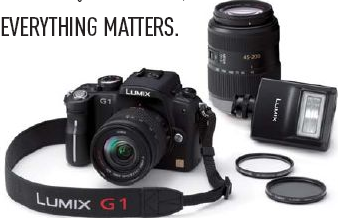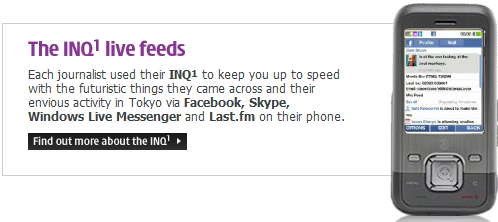 Last Saturday I came across a tweet by Jeremiah Owyang (@jowyang) that stated:
Last Saturday I came across a tweet by Jeremiah Owyang (@jowyang) that stated:
- @juliaalison and Seaworld should read third bullet from @jbernoff When and How to Pay a Blogger (being held liable for false statements…).
The same day @_Annubis_ sent a tweet announcing that he would review blogs using his evaluation system (see Blogvorstellung mal anders).
In addition to the above and considering how popular product tests and reviews are, I decided to address some current ethical and moral concerns including sponsored conversations.
As one vendor put it to me recently:
- “… no matter what I tell you about a product there is no substitute for the touch and feel of it, so it is a must to get you to use our product before you write about it.”
Journalists, consultants and bloggers get access to new technology gadgets in a number of ways, such as:
- a. Signing a document: the document stipulates that you will use the product, write a review and return it afterward (Cisco and others follow this policy).
b. Attending an invitational event: each delegate gets a highly personalized goody bag that includes products valued at several hundred Euros (wholesale price); the products are either kept and used, left behind at a hotel or given to a family member or friend who may have use for it (e.g., Microsoft or Google).

c. Getting invited to a test junket: a nice location with great food, entertainment and plenty of freebies – remember the infamous elk-test? In November 1997, during an invitation-only event for motor journalists in Southern Sweden, one participant tried to drive the Smart car (Daimler) as if avoiding an animal on the road – fast and furious. As a result, product launch was delayed by about 12 months at a cost of 300 million German Marks (€ 150 million), according to Nicolas Hayek.
 Besides test-driving cars in nice locations, journalists like Jonathan Margolis (technopolis guru) may get a 5-day, all-expenses-paid trip to Tokyo from INQ1.
Besides test-driving cars in nice locations, journalists like Jonathan Margolis (technopolis guru) may get a 5-day, all-expenses-paid trip to Tokyo from INQ1.
- d. Purchasing the product as an anonymous shopper: subsequent testing is done under clearly specified conditions, like Consumer Reports in the US does.
e. Purchasing the product for personal use: after some time you may decide to write about your user experience.
f. Being ‘influential’ enough: the vendor sends the latest version of the product in the hope that the blogger or journalist will write about it or mention it somewhere ‘appropriate’.
Reading the US FTC guidelines or the UK’s rules regarding fair dealings indicate that things become somewhat fuzzy when points b, c or f occur. How much such a ‘benefit’ affects one’s objectivity when doing a future test or write-up is unclear.
Of course, most magazines, journals or bloggers cannot afford to purchase the product anonymously and test it thereafter as Stiftung Warentest or the Stiftung für Konsumentenschutz does (scenario d).
Theory versus practice
Josh Bernoff raises important points in his blog post When and How to Pay a Blogger. Most tests and reviews are influenced by vendors in one way or another, whether directly or indirectly. As the UK example of the all-expenses-paid trip to Tokyo shows, payment can occur in myriad ways, ranging from nice trips to ‘free’ products, goodies for family members (e.g., my kid getting a wireless gadget in the mail) or cash for an article.
Further, the financial crisis has clearly demonstrated that regulations are rarely, if ever, perfect and continue to be circumvented by some. This issue is neither black nor white but comes in various shades of grey. Of course, a well-known writer such as the Financial Times’ Paul Taylor (Dell takes on laptop elite) or the Wall Street Journal’s Walt Mossberg (Palm’s New Pre Takes On iPhone) are forgiven if they use their contacts to get faster and better warranty service than John Doe ever will. Or not.
More often than not the two hours or so reporters may spend ‘using a product’ (i.e. dabbling with the technology) at a media event organized by the vendor provides little opportunity to write more than what is already in the media or press kit. Naturally, many reporters and bloggers such as Paul Taylor and Walt Mossberg do much more than that.
Bottom line
While ethics guide personal behavior in daily life, our morals provide an impartial constraint on the pursuit of individual interests. That benefits come your way as a ‘gadget guru’ is obvious – the challenge is where to draw the line. One practical approach is that readers, journalists or bloggers insist on disclosure, while abiding by their ethical standards. The buck stops with each journalist, blogger or consultant. How many goodies, freebies, trips, dinners, high teas can and/or will you accept… while still justifiably claiming to be independent?
Okay, now it’s your turn. What do you think about this issue, what did we miss in this blog post? Please add it below. Thanks much.
PS. Sponsored conversations occur when one pays a blogger or journalist to write about a brand, product or technology gadget.
Pingback: New Gadgets | Bottomless goody bag: Fair product reviews
Pingback: Urs E. Gattiker
Pingback: Urs E. Gattiker
Pingback: MyComMetrics
Pingback: Naijand Inc
Pingback: 3 lessons for bloggers: Fashion, BP and the FTC - Business Exchange, FTC guidline, blogger guideline, blogger endorsement, blogger advertising, celebrity endorsement, high heels, black high heels, fashion week, legislation, benchmark, social media measure
Pingback: ComMetrics weekly review: the Governator to Wal-Mart - Flickr Google T-Mobile Twitter Wal-Mart, Arnold Schwarzenegger, Social Media, TOOLS and GUIDES, joined LinkedIn Xing or Plaxo BUT who wants to join your group, careful or face the music, Social Media,
Pingback: Urs E. Gattiker